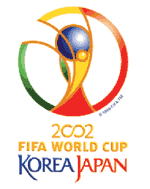 By the time you read this I'll be in Japan, but I spent most of the first week of the World Cup watching games in Nepal. Last Friday, I headed out to a Lazimpat hotel for a fancy-schmancy opening night party. I was struck by two things. First, despite the Rs 1,000 ticket, the room was packed, with hardly an expat in sight; and second, virtually everyone in the room was cheering at the top of their lungs for underdog Senegal.
By the time you read this I'll be in Japan, but I spent most of the first week of the World Cup watching games in Nepal. Last Friday, I headed out to a Lazimpat hotel for a fancy-schmancy opening night party. I was struck by two things. First, despite the Rs 1,000 ticket, the room was packed, with hardly an expat in sight; and second, virtually everyone in the room was cheering at the top of their lungs for underdog Senegal.
It's much more common, in my experience, for sports fans from countries with poor teams to root for countries with great teams. But Nepalis don't seem to revere defending world champion France as much as Argentina, Brazil and England. The lone goal, by Senegal, was total slop and France was extremely unlucky to hit the posts and crossbar several times, but a win is a win and the shirt-and-tie crowd at the party was more than happy to spend a couple hours shouting at the big screen in support of Senegal. Karna Thapa, an educational consultant from Kathmandu, was in a philosophical mood after the match and said that the result was "very nice-France is very powerful and even they can lose a game. Every team has to keep improving; no one knows what will be tomorrow."
Later in the weekend, I went to Kathmandu University's student canteen to watch the Argentina-Nigeria match with about 50 male undergraduates. The atmosphere was certainly different-Friday night's uniformed waiters replaced by a backroom kitchen staff, and trays of hors d'oeuvres and whisky swapped out for institutional-sized vats of daal bhaat and short-orders of egg chowmein. And all the students were vociferously supporting the heavily-favoured South Americans.
Many of the students seemed focused on watching the game to improve their own football skills: During the game, I heard "luv-ly pass" more than any other comment, which is exactly what these guys say incessantly when they're on the football field themselves. But there was still plenty of flag-waving (Argentina's sky-blue and white stripes) and chanting: "Ar.Gen.Tina! Ar.Gen.Tina!"
KU is holding exams this month, and Umesh KC, 20, from Banepa, says he's trying to salvage his school year by watching only the matches of Brazil, Argentina, England, France, and Italy (which still means he's booked for over 40 hours of TV time this month). Regardless, his studies are taking a beating. "[Saturday] I watched football all day and I had a math test today," he said. "I passed, but that's all."
But as addicted as these Nepali fans are, I wondered if things wouldn't be 10 times worse if their own national team were in the tournament. In a recent editorial, the Kathmandu Post suggested that it might take something like 50 years before Nepal could make a good run at qualifying for the finals, but a few of the exuberant fans I spoke with were much more optimistic, saying they could see it happening within 8-16 years.
Any appearance in the finals would, of course, be a huge boost to Nepal's national pride. Every time a World Cup comes around, the sports sociologists roll out of the background to talk about how football is the primary vehicle through which modern nations express nationalism, and if Nepal were competing this month I'm sure we'd all watch their matches and scream our heads off in hope from beginning to end.
Even though they're not, another pet theory of the sociologists is that football teams sublimate and express certain elements of national character-and we already have considerable evidence to support this one. Not satisfied with the one football federation most countries bumble along with, Nepal has two. They have different presidents, each of whom seems to spend an inordinate amount of time making sure that his or her camp is the one that is officially recognised by the rest of the world, rather than developing the game.
One Nepali fan I spoke to speculates that national character might manifest itself in absurdity on the field of play-left backs would pass only to left midfielders, and right midfielders would look to set up only the right wing. And both camps might plot to bring down the team by scoring deliberate own goals in an attempt to remove the keeper-who is the one player of whom there can be only one-and install someone of their particular ideological stripe, even if that person is in fact an inferior choice. Sound familiar?
(Bill Brewster, an American living in Dhulikhel, provides Nepali Times readers with a weekly football World Cup column from Japan and Korea.)


